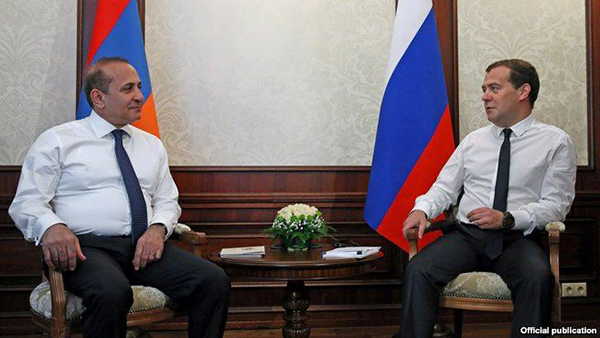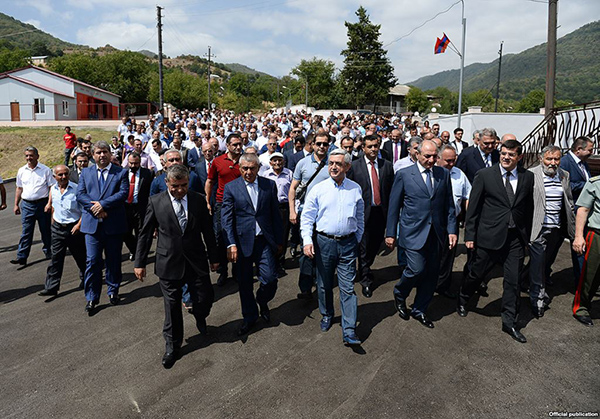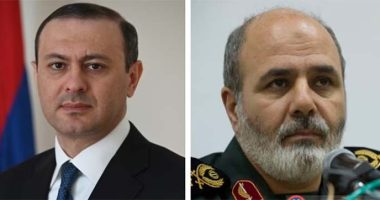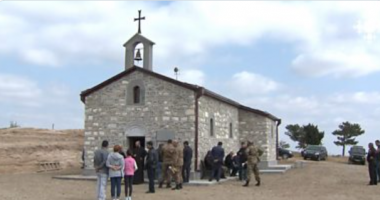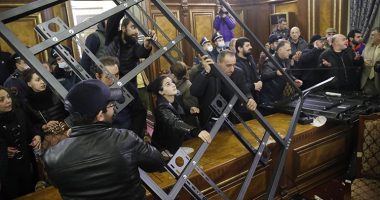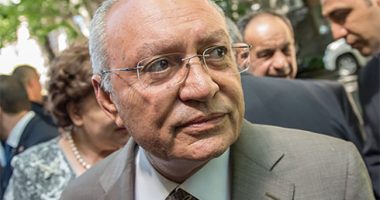YEREVAN — Russian Prime Minister Dmitry Medvedev has cancelled a planned visit to Yerevan that was expected to focus on Armenia’s membership in the Eurasian Economic Union (EEU), Prime Minister Hovik Abrahamian said on Monday.
Abrahamian announced Medvedev’s trip, scheduled for September 8-9, on August 19, more than a month after the two men met in the Russian city of Sochi.
Abrahamian clarified on Monday that the Russian premier was supposed to arrive in the Armenian capital along with his counterparts from the two other EEU member states: Belarus and Kazakhstan. They had “tentatively” agreed to discuss there concrete terms of Armenia’s membership in the Russia-led bloc, he said.
Abrahamian told reporters that prime ministerial talks will not take place because “the matter been transferred to the level of the presidents.” “As you know, [Kazakhstan’s President Nursultan] Nazarbayev has stated that the [Kazakh, Russian and Belarusian] presidents will gather in Minsk on October 10,” he said.
One of the issues on the agenda of the Minsk summit is the signing of an accession treaty with Armenia that was drafted in June by the EEU’s executive body, the Eurasian Economic Commission.
Russian President Vladimir Putin formally approved the treaty on Monday. According to the Regnum news agency, Putin at the same time instructed the Russian government to seek unspecified minor changes in the text.
Both Belarus and Kazakhstan have been far less enthusiastic about Armenia’s entry into the EEU than Russia, and the signing of the treaty before the end of this year is therefore not a forgone conclusion. It remains to be seen whether Yerevan’s membership bid will be further complicated by what appears to be friction between Moscow and Astana.
On August 25 Nazarbayev told a Kazakh TV channel that he will not hesitate to pull his country out of the EEU if it poses a “threat to our independence.” In what some observers see as a stark warning to Kazakhstan’s longtime ruler, Putin publicly said four days later that the Kazakhs “had never had statehood” before the Soviet collapse and that most of them favor closer ties with Russia.

